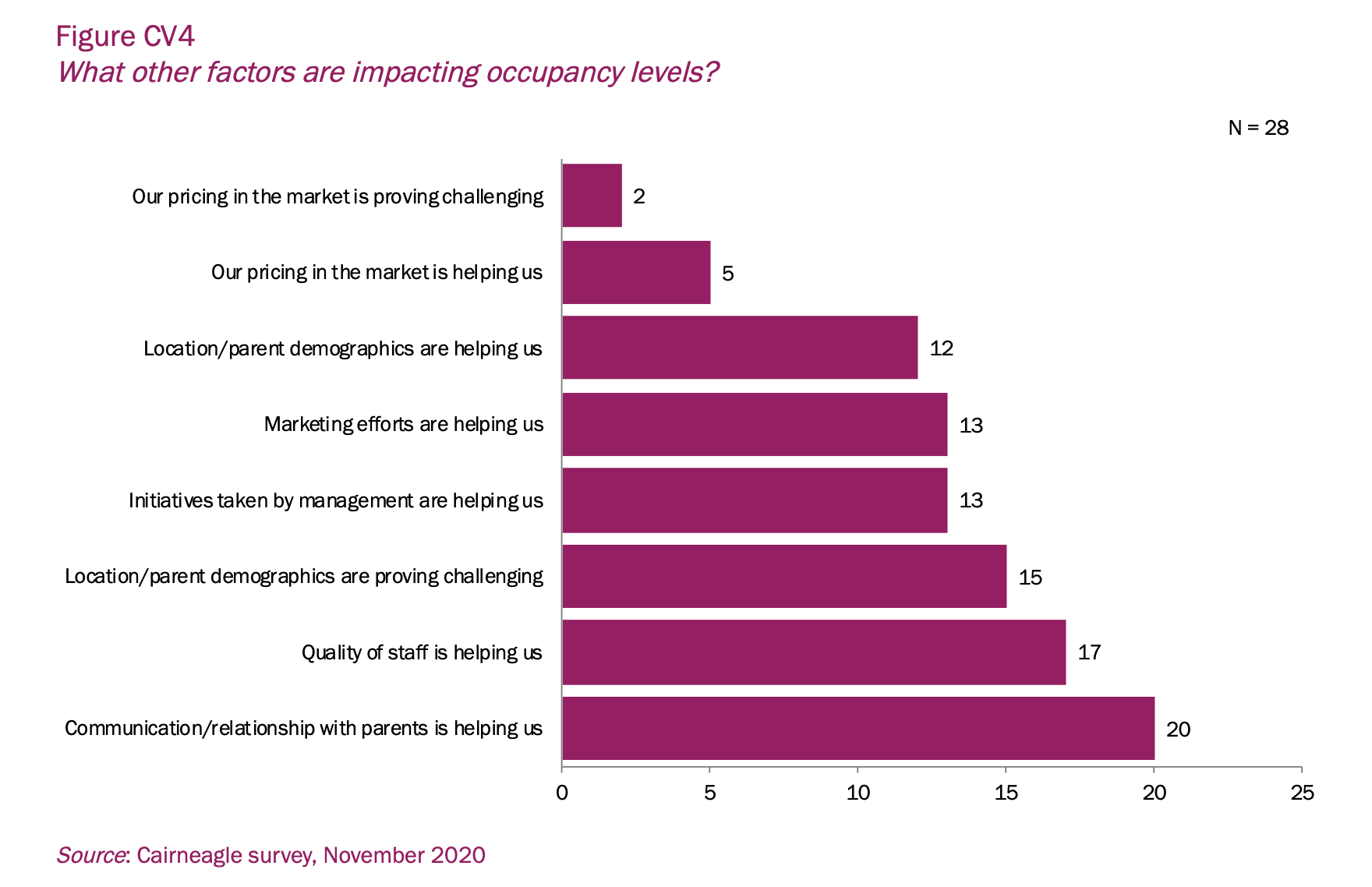
Most nursery operators spoken to by Cairneagle Associates for the special Covid update to the last LaingBuisson Childcare UK Market Report - which was completed in mid-February 2020 just before the country went into the first lockdown - expect to recover losses through this year.
A third of operators (33 per cent) surveyed in November 2020 expect their portfolio to recover by the second half of 2020. Eleven per cent think it will take until next year.
In addition, the majority of respondents are planning to either grow their business (50 per cent) or hold stable (32 per cent). Only less than a fifth (20 per cent) are expecting to sell or close nurseries, while none of the operators is thinking of making an exit from the sector.
Even thought there is general economic uncertainty, the childcare sector remains attractive to investors. This is attributed to factors including access to childcare being increasingly part of the essential infrastructure that supports the labour market participation and thus wider economy.
Acquisition also provides opportunities for nursery groups to outperform the market by making better commercial decisions. As a result, ‘acquisitive activity’ has continued during the pandemic.
The report names the most notable acquirers - The Old Station Nursery (which bought Sunhill Daycare), Family First (which acquired Head Start), ICP Nurseries’ acquisition of/merger with Cresswell, and continued expansions by Welcome Nurseries and MiChild.
Impact of pandemic
Report author Arun Kanwar of Cairneagle Associates, told Nursery World, 'The impact of Covid on the childcare sector is one that continues to unfold and evolve - even since writing the report a number of operators we have spoken to have seen their occupancy levels move upwards, and the Government has finally provided a provisional pathway out of lockdown.
'However, at the same time, we are beginning to hear of more nursery closures (even at the more premium end). Overall, nurseries have proven that they are resilient and a lynchpin of the UK infrastructure, and the changes that Covid are accelerating (including a migration to regions) can create some long term opportunities.'
The report found that nurseries in residential areas where professionals live have fared better than destination and workplace nurseries, with some maybe even surpassing historic performance as families have moved to using nurseries nearer home.
‘However, there is likely to be a disproportionate impact on nurseries which serve lower socio-economic groups,’ the report warns. ‘A further consequence of the economic turmoil caused by the coronavirus lockdown that could challenge demand is that low-paid workers, young people and women are also most likely to have lost work in Britain.’

Regional differences are also noted, with generally, nurseries in the South East of England being the least badly affected, with occupancy levels down nine per cent in November 2020. Settings in the East of England have experienced more major declines than the rest of the country (18 per cent).
While location has impacted on how nursery businesses have fared during the pandemic, funding has also contributed. ‘For example, from our conversations, nurseries which rely heavily on funded children have been challenged, due to a combination of this socio-economic having a higher weighting to losing their jobs,’ the report says.
- LaingBuisson's 16th Childcare UK Market report with Covid-19 update is available here









